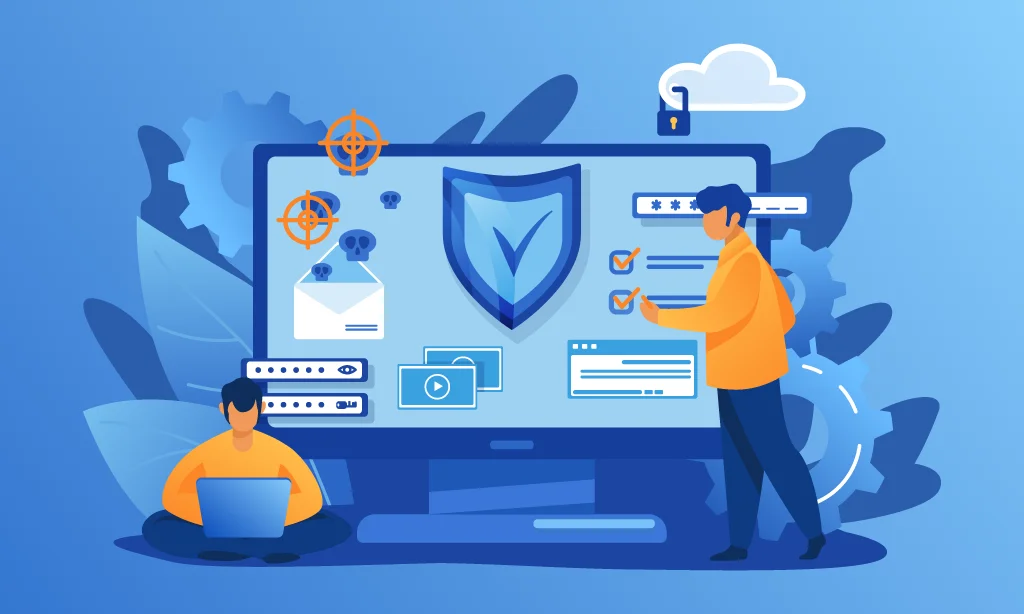In today’s digital landscape, securing your website is crucial to protect it from various threats, including cyberattacks, data breaches, and malicious activities. Web hosting security is a fundamental aspect of website management that ensures your site remains safe and operational. This guide covers best practices for web hosting security, helping you safeguard your site from potential risks.
Implement Strong Password Policies
1. Use Complex Passwords
One of the simplest yet most effective ways to enhance web hosting security is by using strong, complex passwords. Avoid using easily guessable passwords and opt for combinations of letters, numbers, and special characters. Regularly update passwords to minimize the risk of unauthorized access.
2. Utilize Password Management Tools
Consider using password management tools to generate and store secure passwords. These tools can help you create unique passwords for different accounts and store them safely, reducing the risk of password-related security breaches.
Enable Two-Factor Authentication (2FA)
1. What is Two-Factor Authentication?
Two-Factor Authentication (2FA) adds an extra layer of security by requiring users to provide two forms of verification before gaining access. This typically involves something you know (password) and something you have (a mobile device or authentication app).
2. Implement 2FA for Your Hosting Account

Enabling 2FA for your web hosting account enhances security by making it more challenging for unauthorized users to gain access. Most reputable hosting providers offer 2FA as an additional security measure, which you should enable to protect your account.
Regularly Update Software and Plugins
1. Importance of Updates
Outdated software and plugins are common targets for cybercriminals seeking vulnerabilities to exploit. Regularly updating your content management system (CMS), plugins, and other software ensures that you benefit from the latest security patches and improvements.
2. Automate Updates When Possible
Many hosting providers and CMS platforms offer options to automate updates. Enabling automatic updates for your software and plugins ensures that you receive critical security patches without manual intervention, reducing the risk of vulnerabilities.
Implement SSL Certificates
1. What is an SSL Certificate?
An SSL (Secure Sockets Layer) certificate encrypts the data transmitted between your website and its visitors. This encryption ensures that sensitive information, such as login credentials and payment details, remains secure and protected from interception.
2. Obtain and Install an SSL Certificate
Most reputable hosting providers offer SSL certificates, and many include them as part of their hosting packages. Ensure that your website has an SSL certificate installed and properly configured to enhance security and build trust with your visitors.
Regularly Back Up Your Website
1. Importance of Backups
Regular backups are essential for protecting your website from data loss due to various reasons, such as server failures, cyberattacks, or accidental deletions. Backups ensure that you can quickly restore your site to its previous state if needed.
2. Automate Backups
Consider using automated backup solutions provided by your hosting provider or third-party services. Automating backups ensures that your website data is regularly and consistently backed up without manual intervention, providing an additional layer of security.
Monitor and Analyze Website Traffic
1. Implement Security Monitoring Tools
Security monitoring tools help you track and analyze website traffic, detecting unusual or suspicious activity. These tools can alert you to potential threats or attacks, allowing you to take proactive measures to address them.
2. Review Logs Regularly
Regularly review server and website logs to identify any signs of unauthorized access or potential security breaches. Analyzing logs helps you detect issues early and respond promptly to protect your site.
Use a Web Application Firewall (WAF)
1. What is a Web Application Firewall?
A Web Application Firewall (WAF) filters, monitors, and blocks malicious traffic to your website. It provides an additional layer of protection by identifying and mitigating potential threats before they reach your site.
2. Deploy a WAF
Many hosting providers offer WAF solutions or integrations with third-party WAF services. Implementing a WAF enhances your website’s security by filtering out harmful traffic and preventing attacks such as SQL injection and cross-site scripting (XSS).
Secure Your Database
1. Implement Database Security Measures
Securing your database is crucial to prevent unauthorized access and data breaches. Use strong passwords, limit database access, and regularly update your database software to enhance security.
2. Regularly Backup Database
In addition to backing up your website, ensure that your database is also regularly backed up. Database backups are essential for restoring your site’s data in the event of a breach or data loss.
Conclusion
Securing your web hosting environment is essential for protecting your website from various threats and ensuring its safe operation. By implementing best practices such as using strong passwords, enabling two-factor authentication, updating software, and deploying security tools, you can safeguard your site and provide a secure experience for your visitors. Regular monitoring, backups, and security measures contribute to a robust defense against potential risks, helping you maintain a secure and reliable online presence.




